Taliban response to Afghan protests ‘increasingly violent’: UN
The Office of the UN High Commissioner for Human Rights (OHCHR) has condemned the Taliban’s increasingly violent response to peaceful protests in Afghanistan, calling on the group to cease the use of force against the protesters.
Ravina Shamdasani, the spokesperson for the OHCHR, made the remarks at a press briefing in the Swiss city of Geneva on Friday.
"We have seen a reaction from the Taliban which has unfortunately been severe," she said, adding that there have been reports of authorities using live ammunition, batons and whips to disperse the crowds.
Shamdasani went on to say that the United Nations had documented the deaths of at least four protesters since mid-August, which she said may have resulted from efforts to disperse protesters with firing.
She added that the UN had also received reports of house-to-house searches for those who participated in the protests, as well as the intimidation of journalists who have been “simply trying to do their job” and covering the protests.
"We call on the Taliban to immediately cease the use of force towards, and the arbitrary detention of, those exercising their right to peaceful assembly and the journalists covering the protests," she said.
Since the Taliban took power on August 15, Afghans have staged small demonstrations in different cities to express their protest against the group's return to power, after 20 years of US occupation.
The Taliban have pledged to rule differently compared to their first stint in power, when girls and women were banned from education. Women, they say, will be allowed to attend university, but there would be a ban on mixed classes under their rule.
On Tuesday, the Taliban announced the formation of a caretaker government in Afghanistan.
The announcement came as rallies were held across the capital, Kabul, with Afghan protesters — most of them women — taking to the streets to show their defiance against the Taliban that swept to power last month.
Several journalists have complained of assault since the Taliban returned to power, and some women have said they were not allowed to carry on working in media jobs.
VIDEO | Report flags India’s violation of rights of Rohingya detainees
Turkey's foreign minister meets Syria's de facto leader in Damascus
'Next to impossible' to rescue patients from Gaza's Kamal Adwan Hospital: Director
VIDEO | Vietnam current prosperity
Report blames gasoil exports for shortage at Iranian power plants
VIDEO | Hind Rajab Foundation names Israeli war criminals vacationing after Gaza genocide
VIDEO | Australians rally for Gaza ahead of Christmas festivities
VIDEO | Attacks on Sana'a


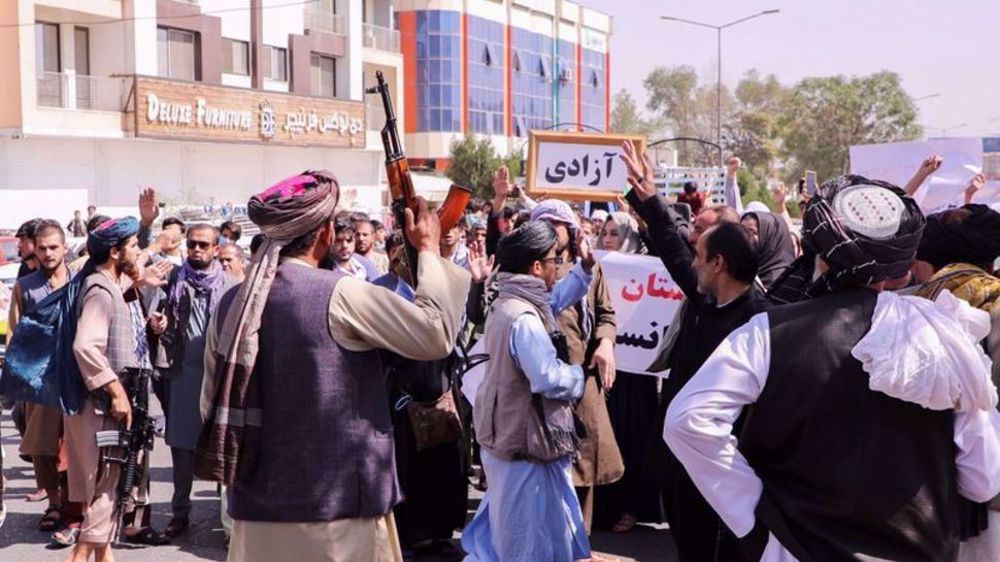
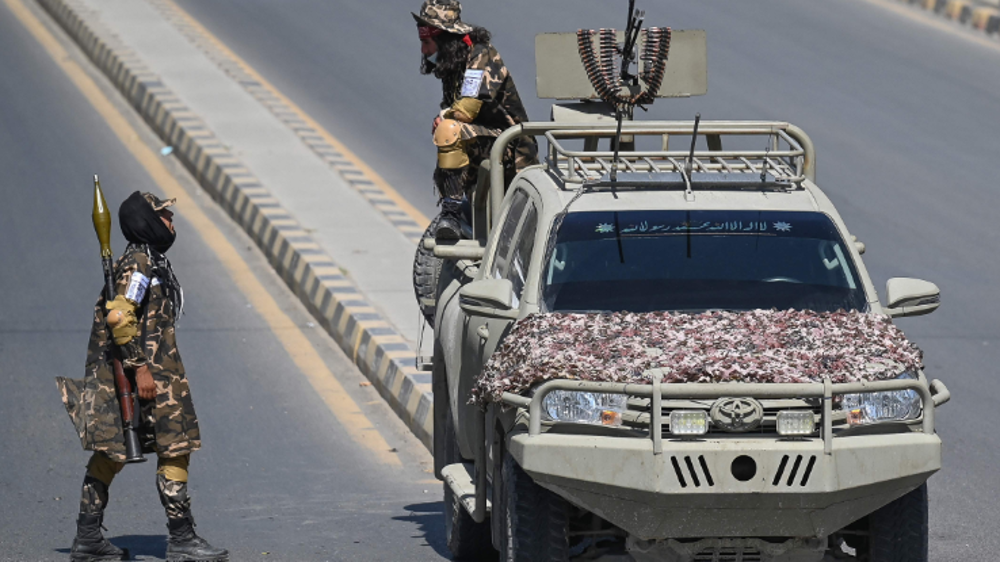

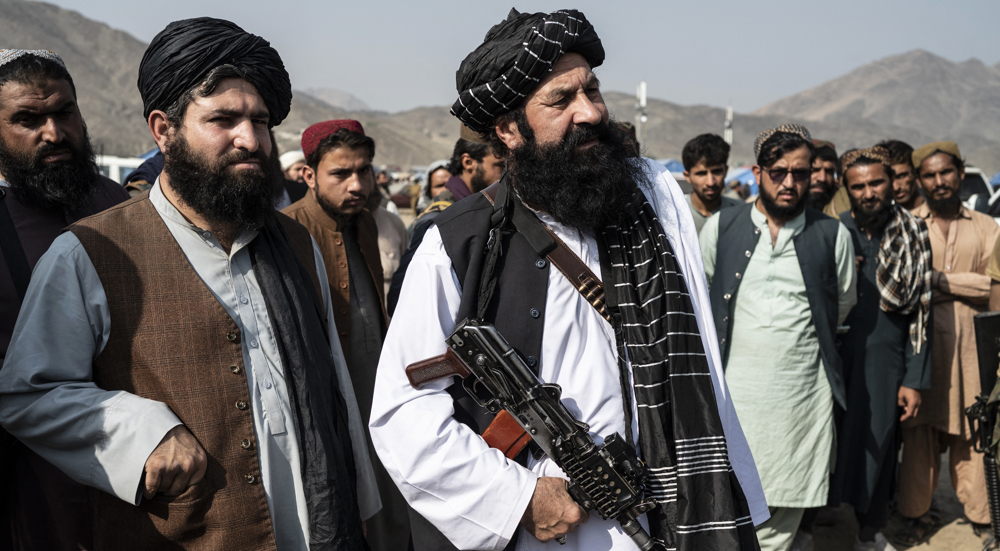
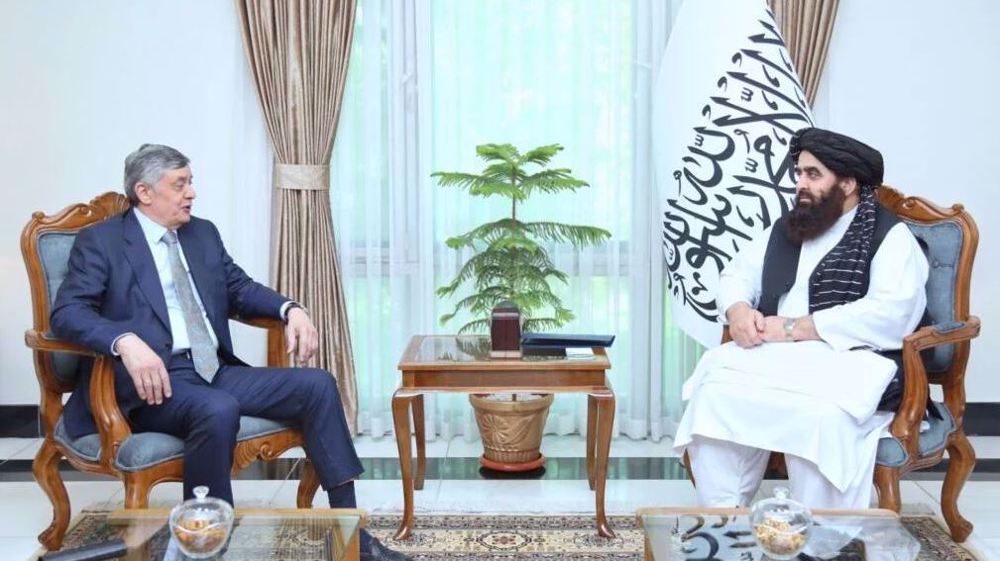



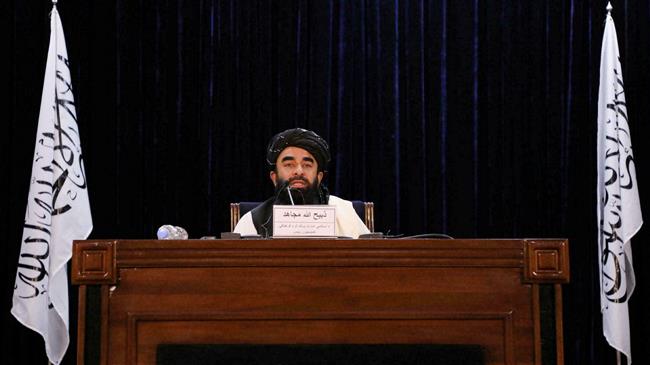
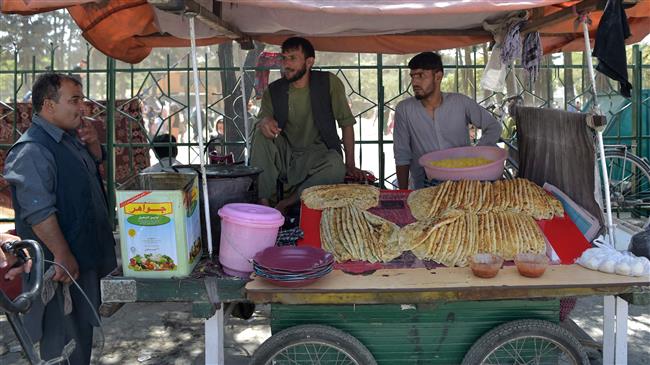

 This makes it easy to access the Press TV website
This makes it easy to access the Press TV website